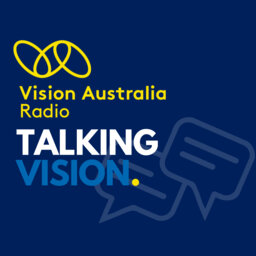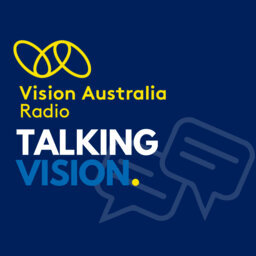Talking Vision 633 Week Beginning 11th of July 2022
Sam is joined on the show this week by Darren Britten from ADCET – the Australian Disability Clearinghouse on Education and Training, who have recently launched a pair of resources aimed at tertiary educators to improve the lives of students who are blind or have low vision.
Then later on this week, Stella Glorie catches up with blind cook, author and Holman Prize winner Penny Melville-Brown to talk about her new book A cook’s tour: Baking blind goes global, capturing the highs and lows of Penny’s life over the past five years while travelling the world, meeting with world class chefs, and overcoming near tragedy and arduous physical recovery to keep doing what she loves.
In 1 playlist(s)
Talking Vision by Vision Australia Radio
Vision Australia Radiothon is on now. Donate via www.varadio.org and make a tax deductible donation …Social links
Follow podcast
Recent clips

Talking Vision 820 Week Beginning 23rd of February 2026
27:55

Talking Vision 819 Week Beginning 16th of February 2026
28:59

Talking Vision 818 Week Beginning 9th of February 2026
28:10
 Talking Vision by Vision Australia Radio
Talking Vision by Vision Australia Radio